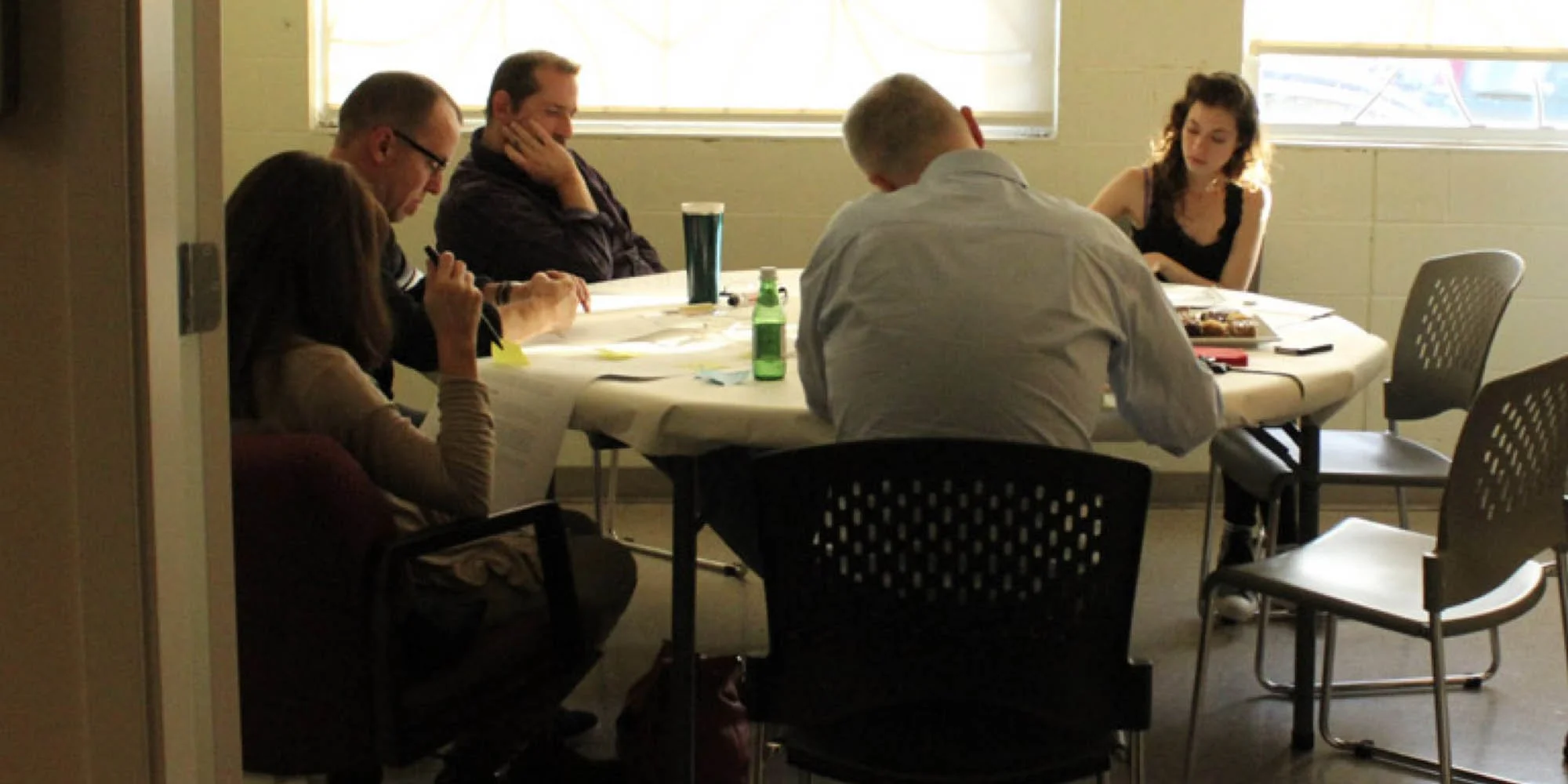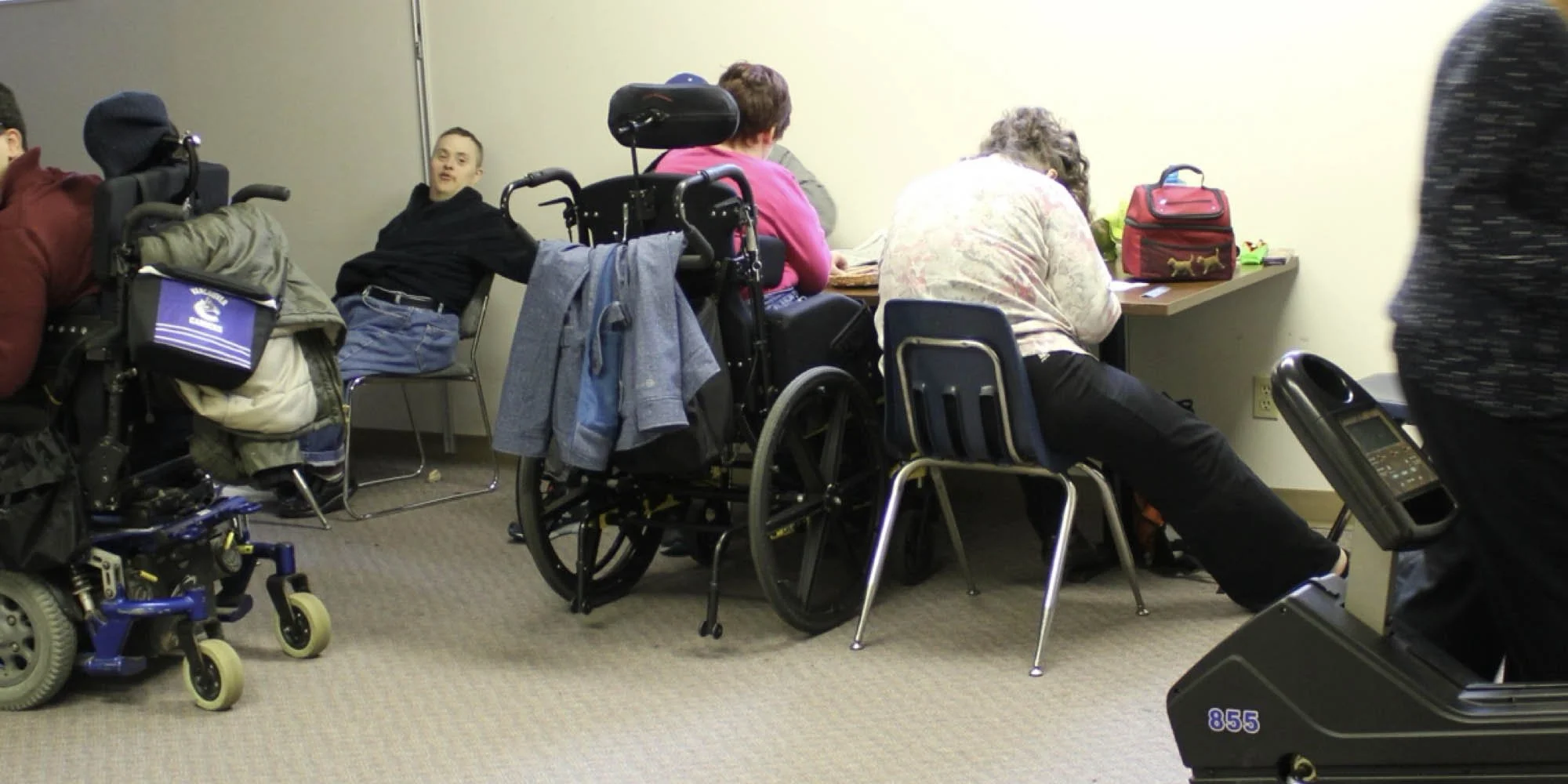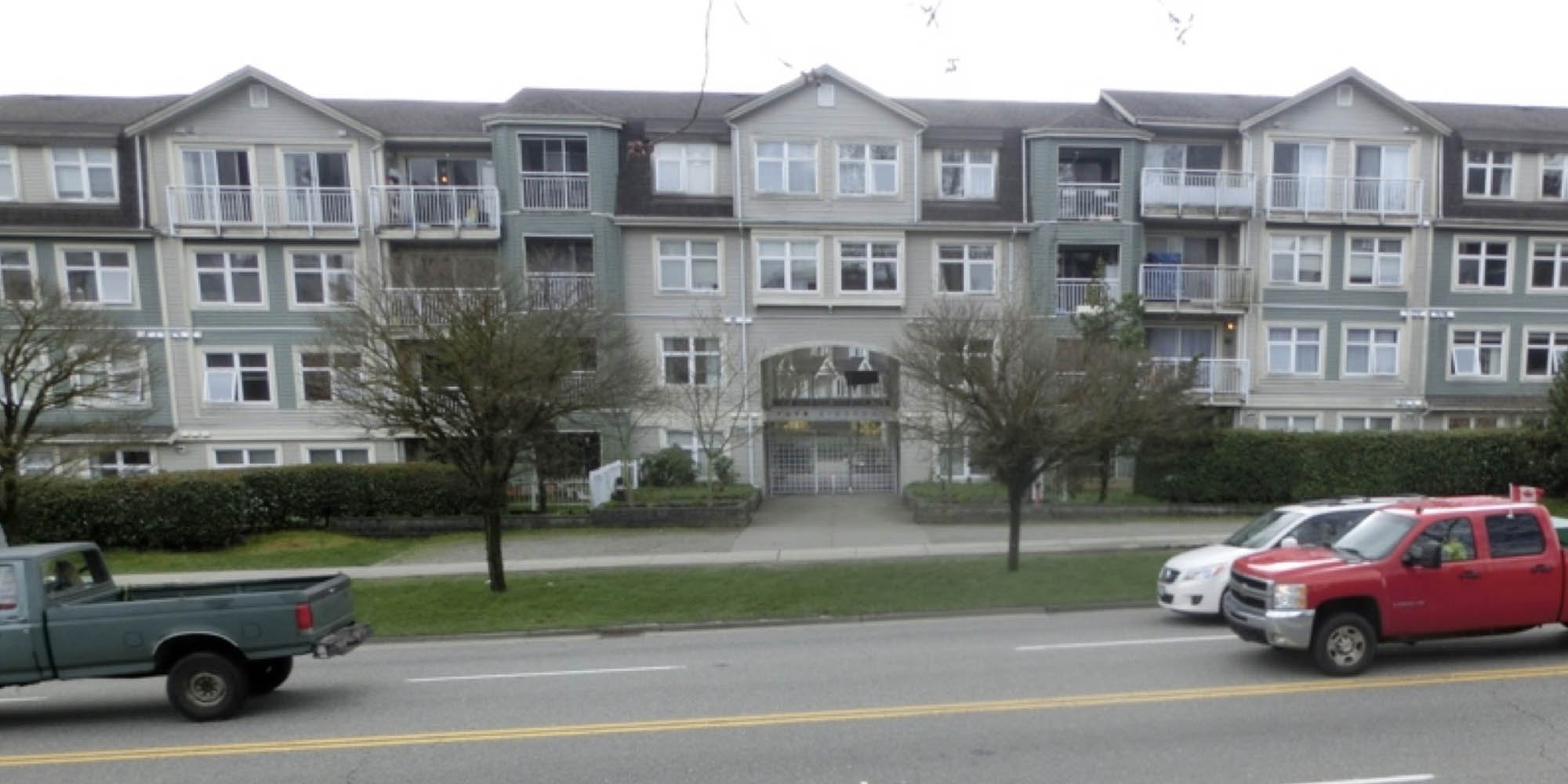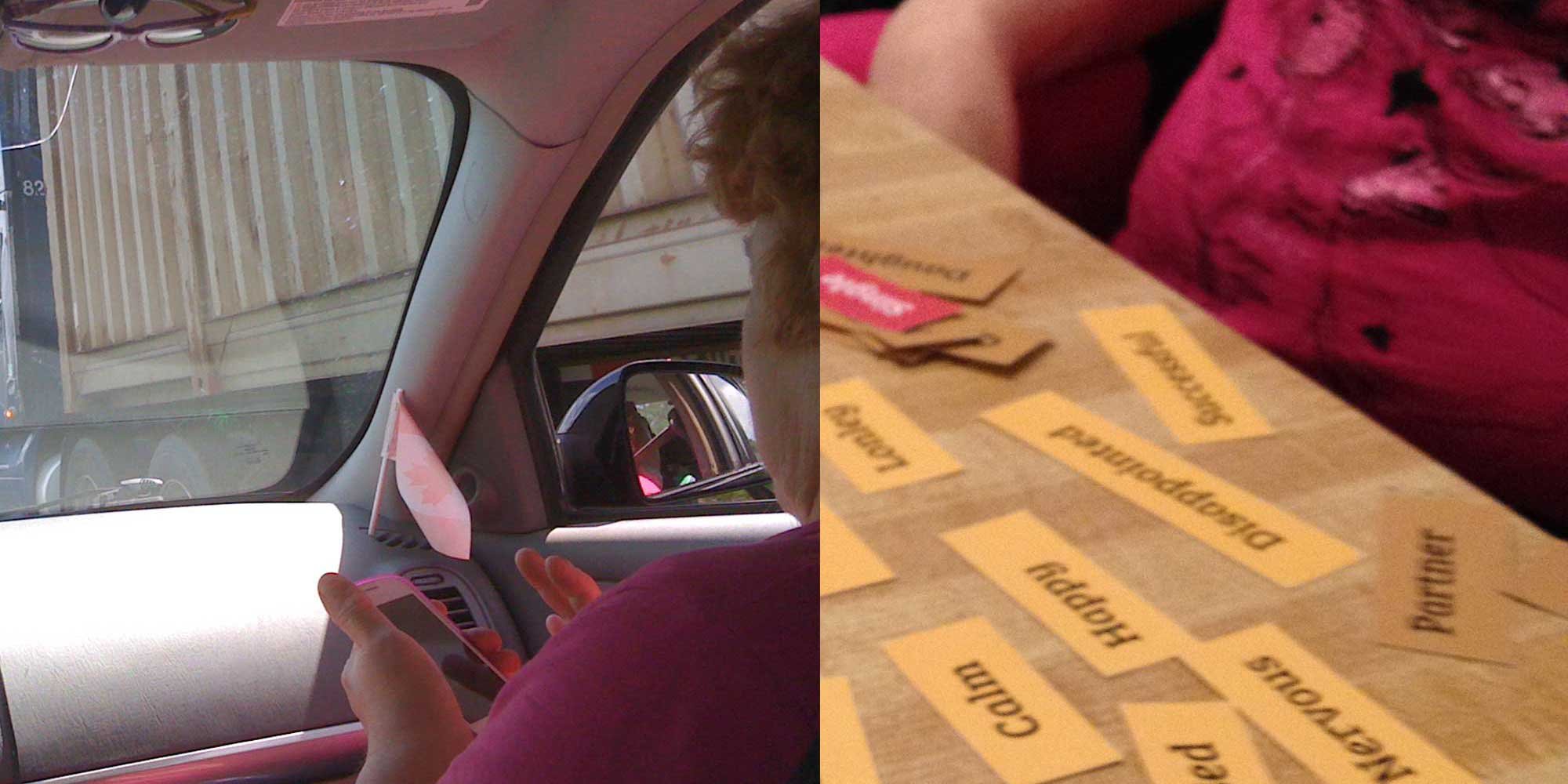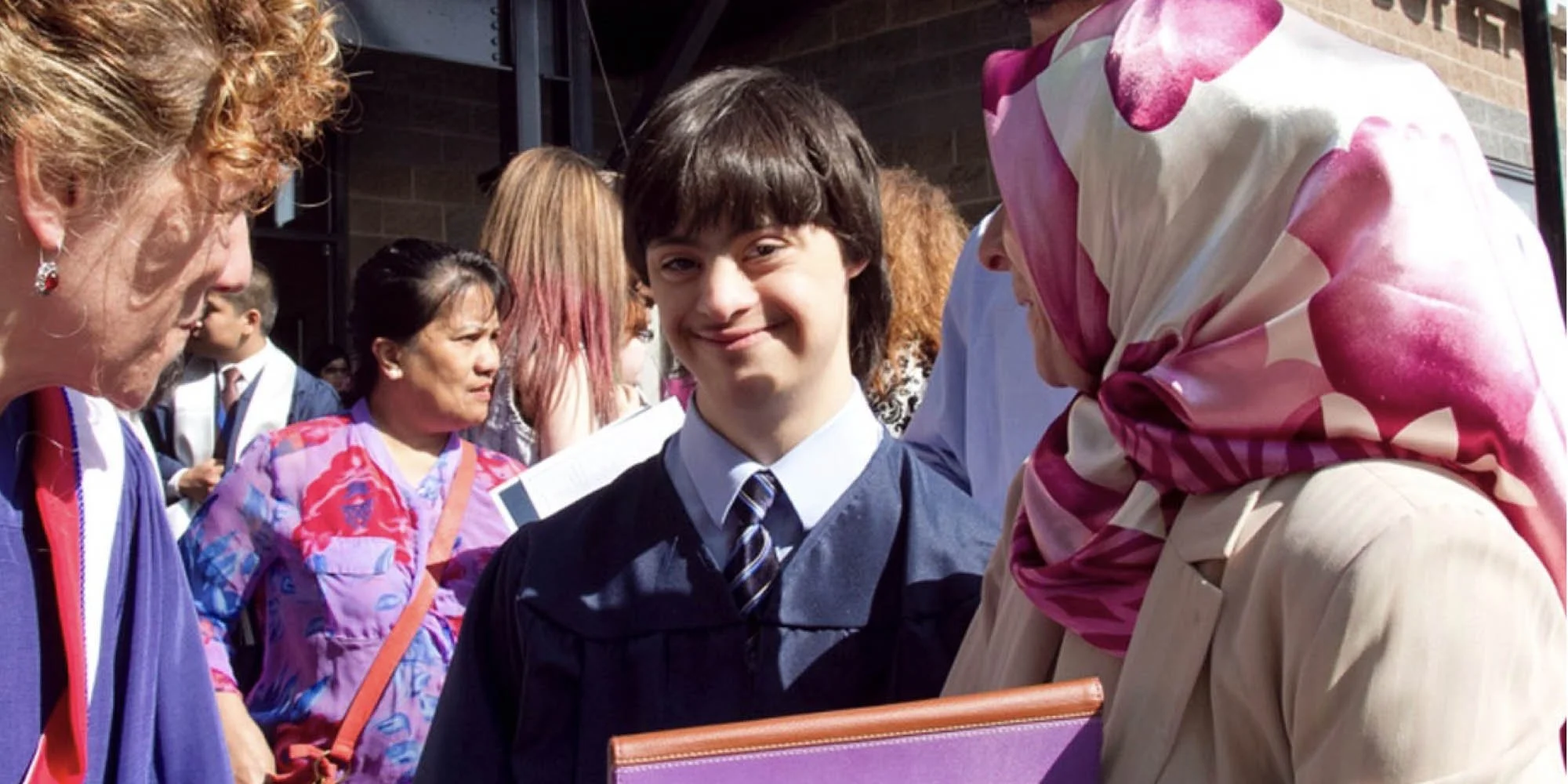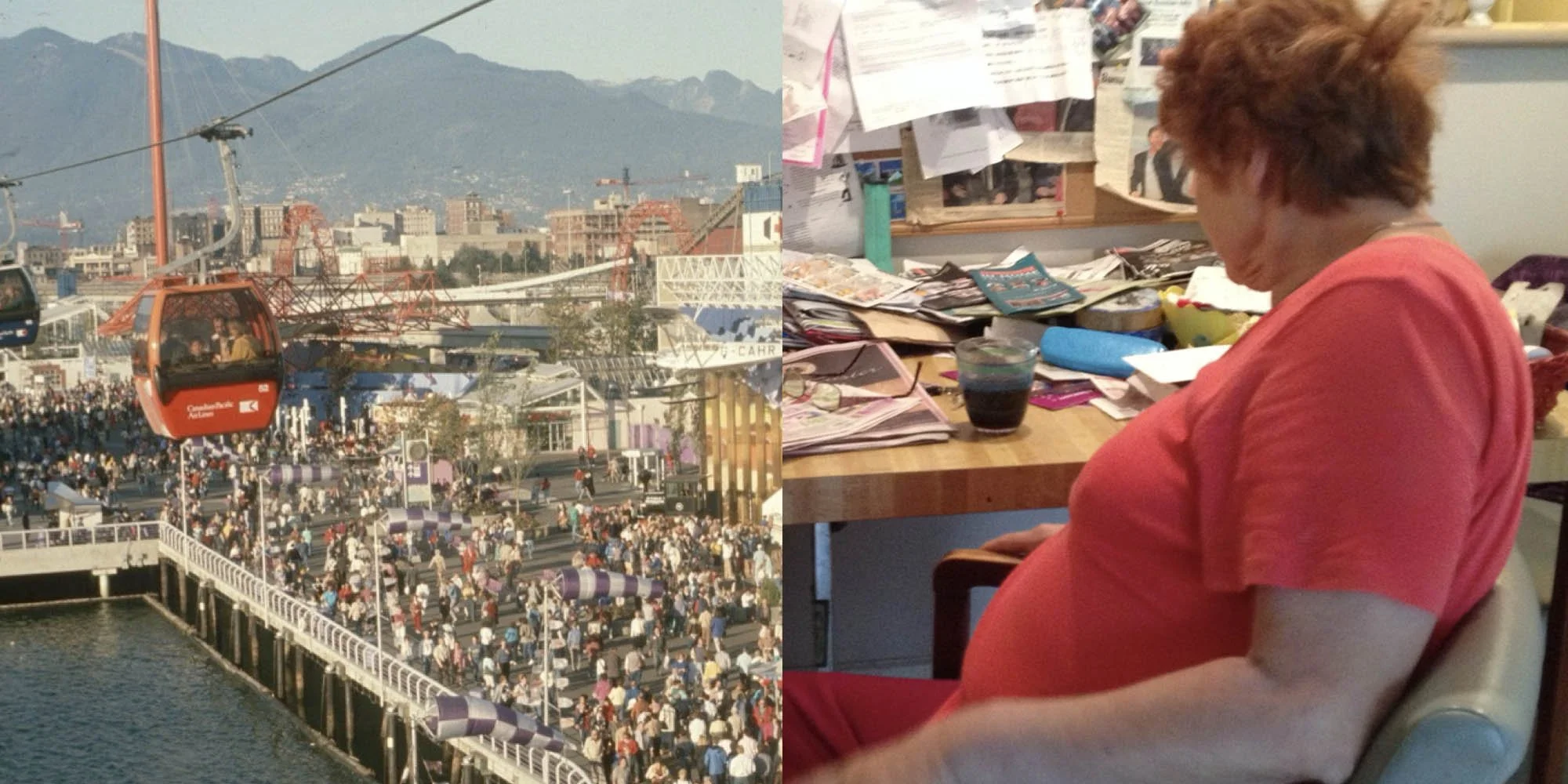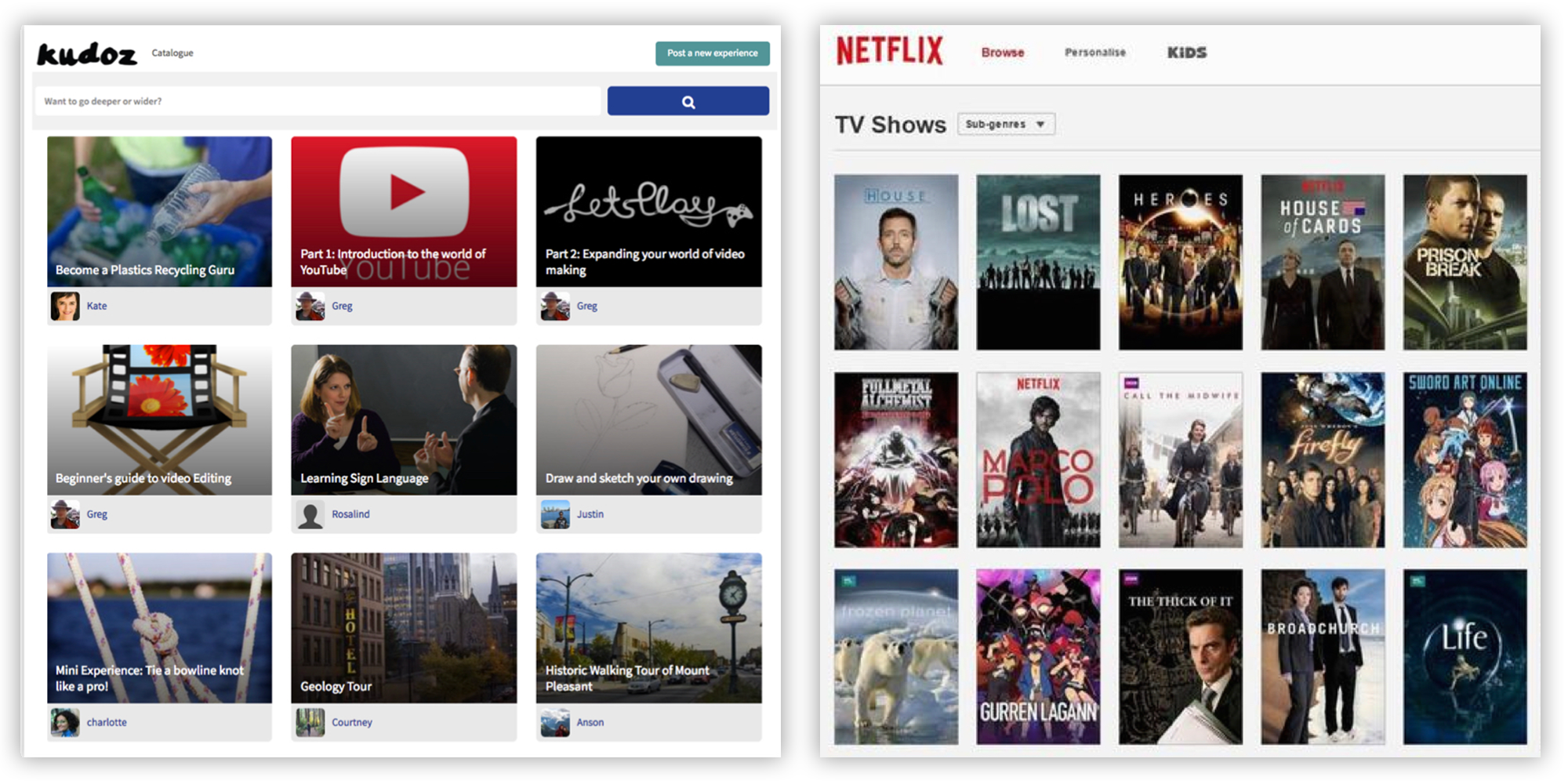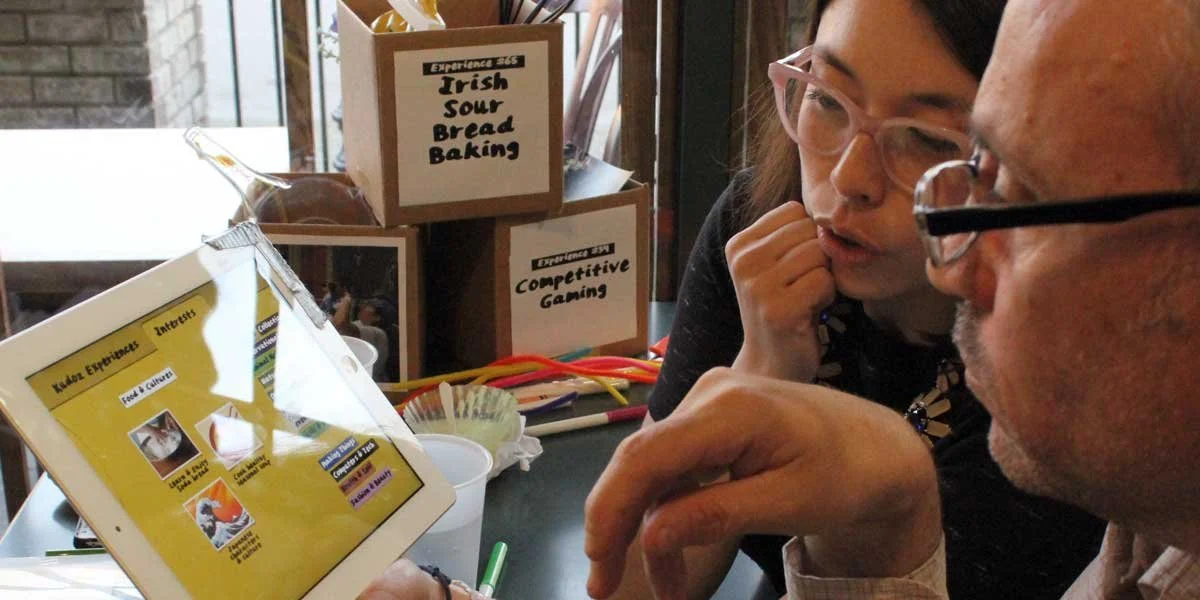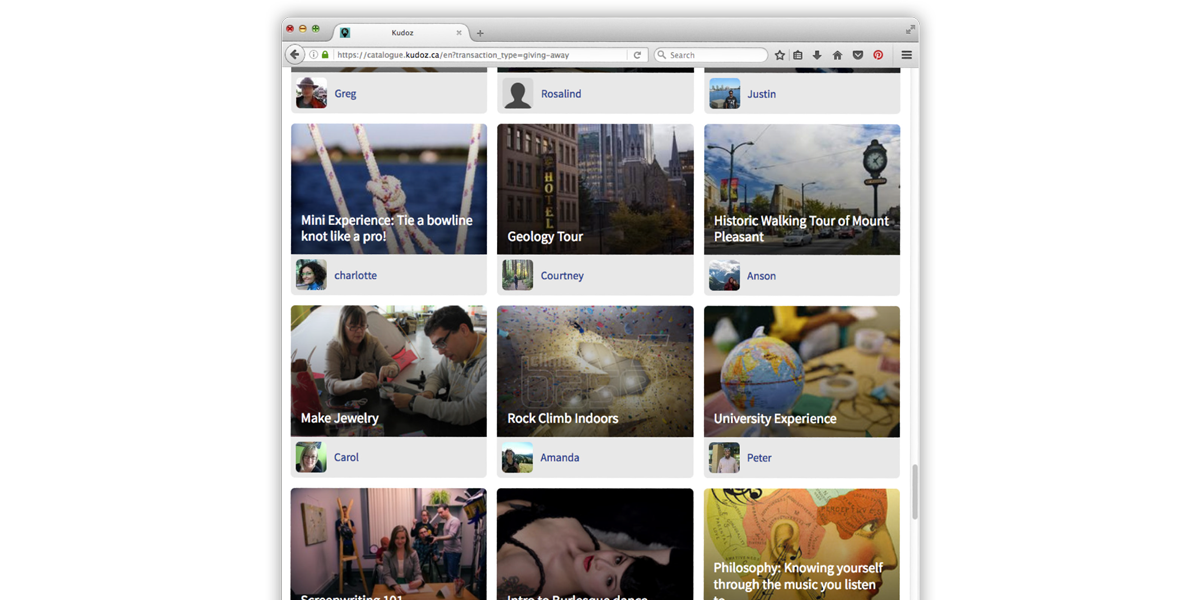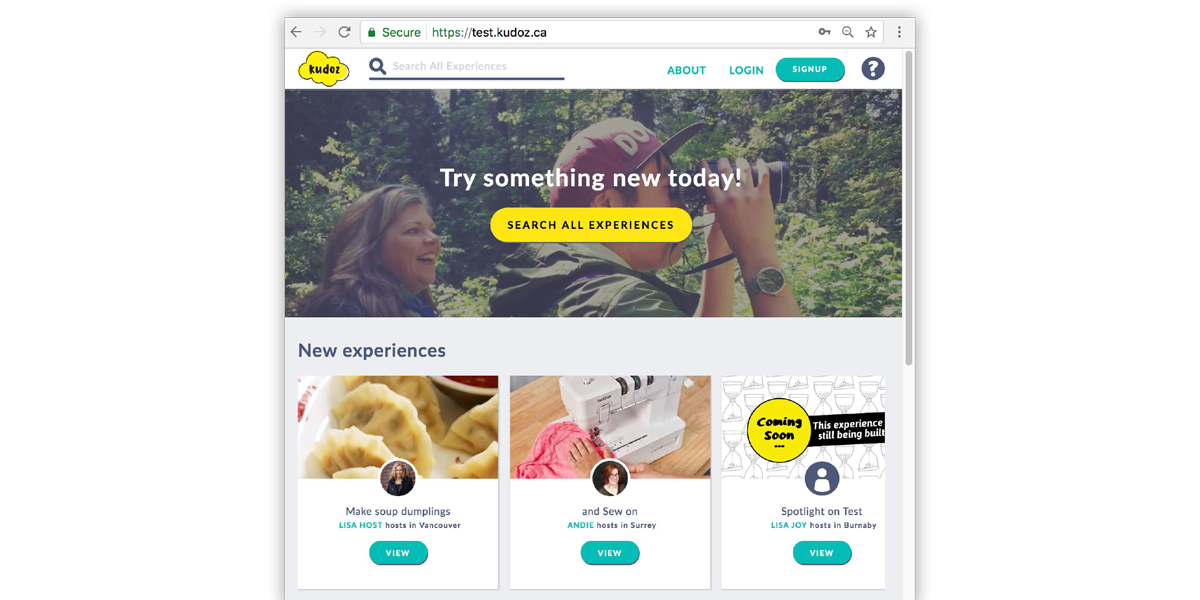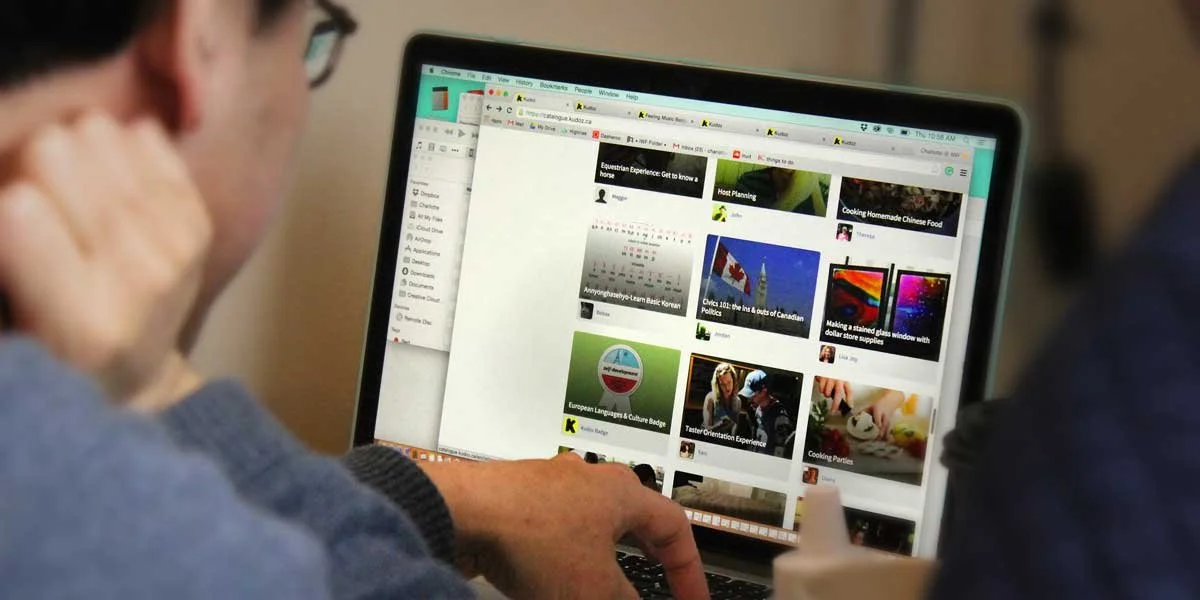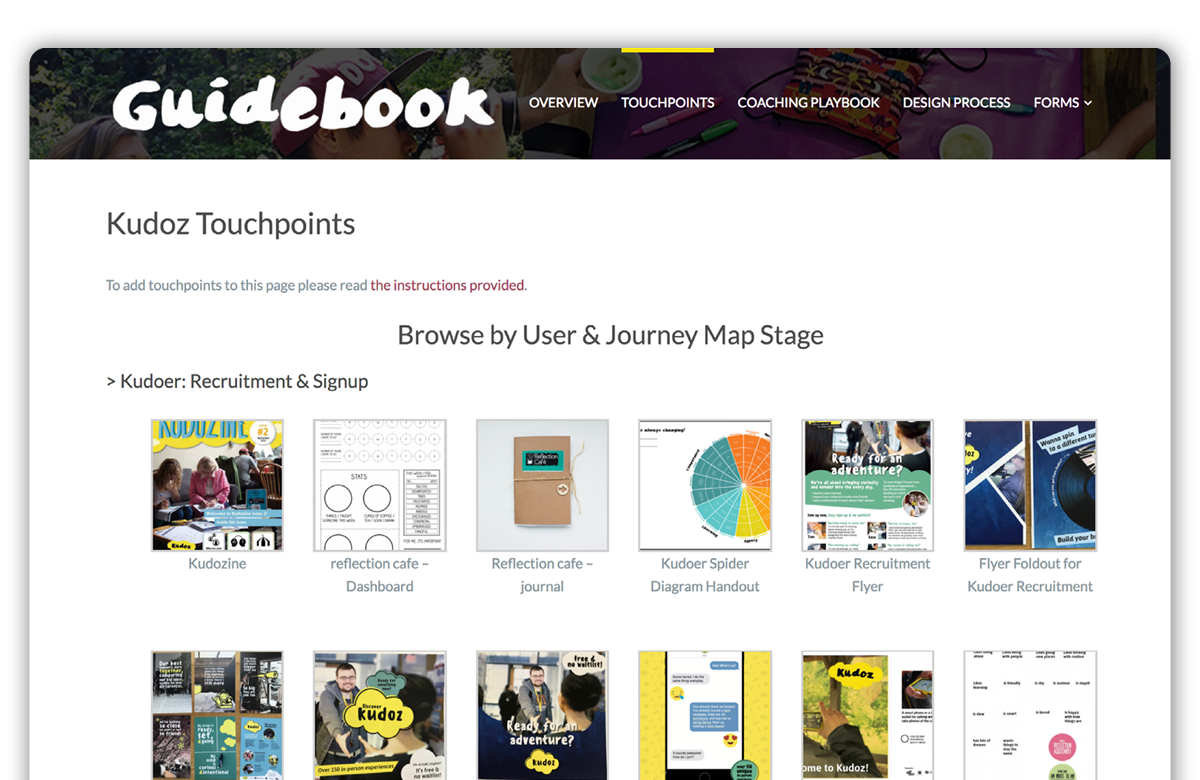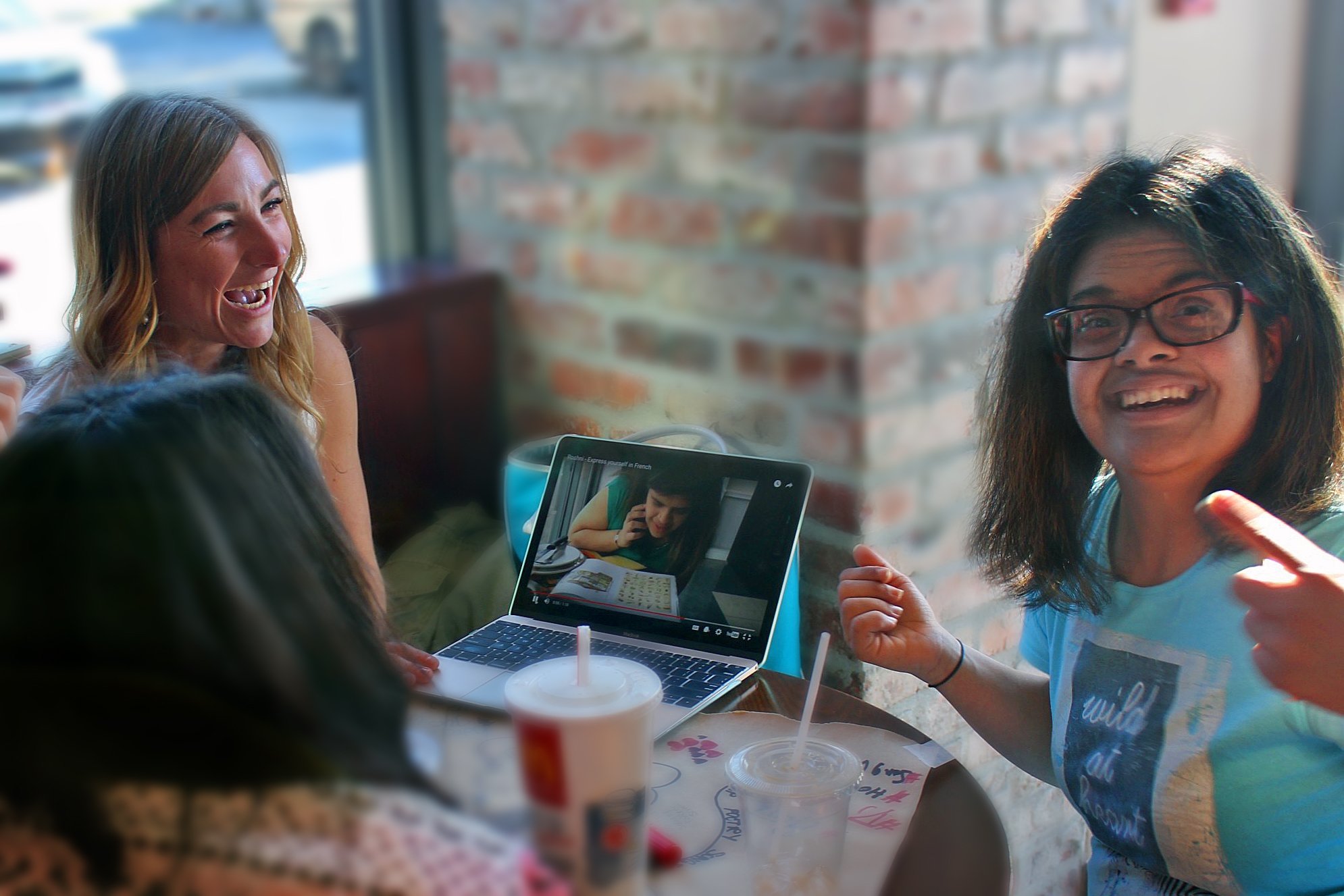
Kudoz
Design and implementation of a Learning Platform with & for People with Cognitive Disabilities
Partners:
Burnaby Association for Community Inclusion
Posabilities
Kinsight
Team:
InWithForward
Period:
April 2016 - 2021
The problem
Too many adults with cognitive disabilities are spending their days in segregated settings doing the same activities day after day. Our initial brief was “How do we reduce social isolation amongst adults living with cognitive disabilities?”. But ethnographic research made us realise they were not just isolated from other people. They were isolated from novelty and learning, leading to stagnation and poor mental health.
The project
Kudoz is a platform connecting adults with cognitive disabilities to 100s of mind growing community experiences. The result of two years prototyping, it is designed to be a pipeline to learning for 22K adults in British Columbia with a cognitive disability. Kudoz is a new service model, with new learning interactions, new roles and new touchpoints, all developed in partnership by three service providers and a social design agency.
My value-add
Designed & tested new learning interactions, inspired by social science theory
Created accessible interfaces for a user group with a wide range of cognitive abilities
Codified service architecture + journeys for ‘Kudoers’, their families & hosts
Led UX design + development of an online catalogue and mobile learning app
Designed and delivered training and onboarding and growth model
Introduction video (3min)
Hear from participants and experts about Kudoz — and how it makes a difference
1) Problem Discovery
Reframing the initial brief and early ideas
2) Solution Discovery
Online catalogue: exercising choice
Host onboarding & Quality assurance
When Hosts join Kudoz, they join an onboarding meeting in which they learn about the ‘working ingredients’ of a Kudoz learning experience. Such as the Host sharing what they love about the topic of the experience. During the onboarding meeting with the Kudoz Coach, Hosts start planning their experience.
For Hosts new to Kudoz, their experience is first tried-out by an experienced Kudoer, called a Taster. They provide feedback to the Host.
Multisensory experiences
In-person interactions enable learning through multiple senses. For Hosts, body language is important to understand Kudoers who are less vocal.
Badges and events
Kudoers and Hosts earn badges for series of experiences they did. Series of experiences are aimed at inviting people to try new things, and stretch their comfort zone.
Jay’s experiences with Kudoz
Jay was in one of the first cohorts of Kudoz. He and his support worker Brad are sharing how Jay benefitted.
Profile page: make change visible
The recollection videos are used for regular reflection. They also give Hosts an idea of the interests and capabilities of a Kudoer, and they serve as a portfolio for potential employment.
Kudoers are regularly invited to reflect on experiences and update their interest. The profile page makes changes visible over time and allows for feedback between Hosts and Kudoers and impact evaluation.
Mobile app: experience recollection
A mobile app supports Kudoers to be independent by setting reminders to get to experiences. The app also supports recollection of experiences as it prompts Kudoers to take several photos during the experience and record a ‘voice over’ afterwards. Voiceover and photos are compiled into a movie, uploaded to a Kudoer’s profile page.
Development & implementation
Service Prototyping
We ran a 6-month prototype to learn if Kudoz generated sufficient interest and impact. We recruited a delivery team, and fleshed out the service journey and theory of change.
We deliberately kept Kudoz outside of the system, whilst we built staff capacity within the system to apply co-design and prototyping methods.
Impact stories
During prototyping, we used multiple evaluation methods, including Realist Evaluation. We collected ‘impact stories’ about actual changes observed related to the desired outcomes of our Theory of Change.
These were captured by the person themselves, or someone in their surrounding, like family or a support worker. We had a regular ritual to discuss these stories to for sensemaking and to collectively refine our Theory of Change.
Better growth
Convinced of the impact, we built systems to support growth of Kudoz: a mobile app; back-end systems; new roles and training materials, metrics; and we tested procurement processes and policies.
Alongside this, we ran Kudoz with a larger group of users and beta-tested different kinds of business models.
Scaling in
Now we are embedding Kudoz within the service system. This means mapping its interplay with other services; and tweaking policies around HR, health & safety and procurement. We hope this ensures that Kudoz isn’t a one-off project or peripheral social enterprise, but part of a system transforming itself.
System:
The government funder charted out new funding streams, applying user-centered design methods. This is significant in a system where top-down planning is dominant.
Outomes
Community:
+180 Community members coached to deliver learning experiences
Better intelligence for decision-making. Kudoz built up a body of fresh data about adults living with cognitive disabilities, and instituted a new way of collecting insights.
Organization:
Greater prototyping capacity Kudoz trained and coached +40 staff on prototyping and co-design for 6 months. Most of them apply these methods to their work now.
“Kudoz has completely shifted the way we think of innovation and service design; from the role of ethnography and design to the application of social science theories and thinking at the level of determinants. We are inspired, energized and ready to press forward.”
Rounded Buttons
Add rounded corners to a button with the border-radius property:

